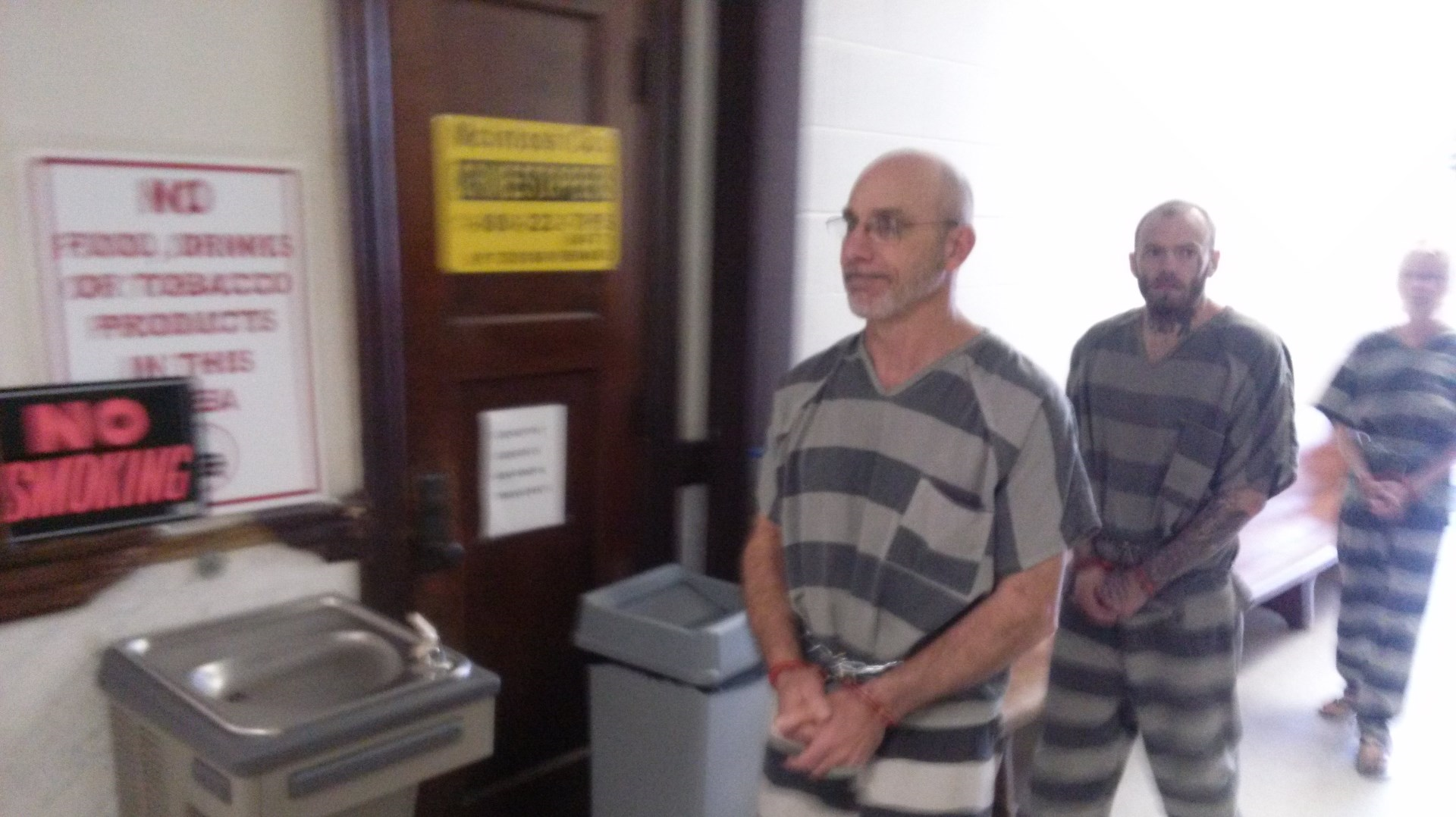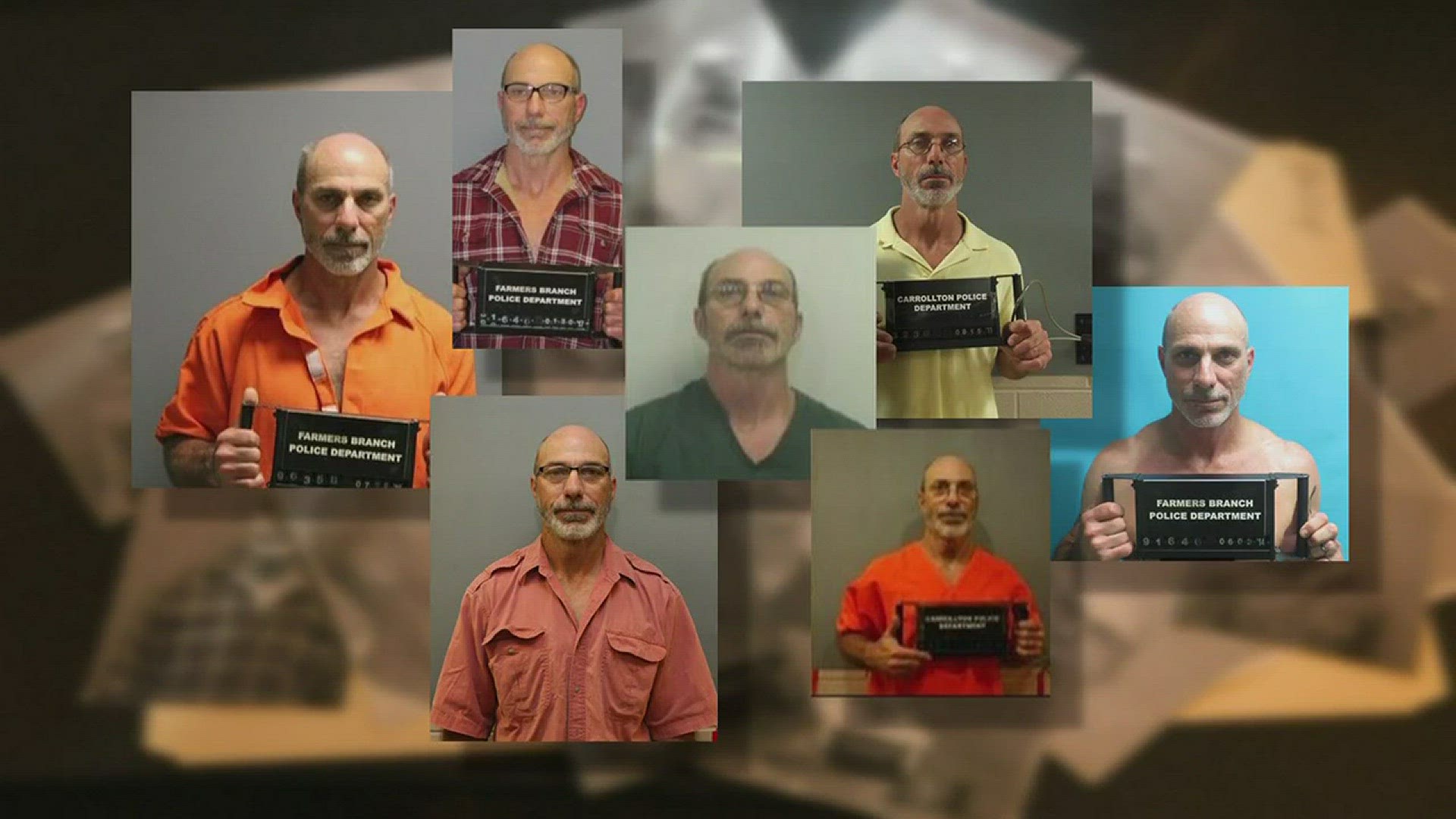DALLAS -- The state of Texas is so troubled by the misfortune of exonerees that lawmakers set up a program to make them whole again, in some cases paying the wrongly convicted millions of dollars in compensation.
But there’s a catch. If they ever again get convicted of a felony, that taxpayer money stops. That’s if they get convicted.
Meet millionaire exoneree Steven Charles Phillips.

In 2008 in a Dallas courtroom, Phillips was exonerated after 25 years in prison for a rape he didn’t commit.
With his exoneration came a payday – a $2 million lump sum, followed by more than $11,000 a month for life.
Phillips is just one of the many wrongly convicted Texas prisoners who have received compensation from state taxpayers.
Since his release, Phillips has become one of the more celebrated exonerees in the country. He's featured in a new documentary called "True Conviction," which was featured last month at the Tribeca Film Festival in New York. Phillips was there for the premiere.
The film follows three Texas exonerees trying to free other innocent inmates. In image after image, Phillips is depicted celebrating his triumph over injustice.
But WFAA has uncovered a series of less flattering photographs.
Mug shot after mug shot of a less sympathetic exoneree, dating back to 2011. All of them linked to an arrest for drugs or petty crimes.
Keep in mind, according to state law, if an exoneree gets convicted of a felony, they lose their yearly payment.
But look what happened to Phillips’ cases.
In August 2011, he was arrested in Carrollton for felony cocaine possession. He was no-billed by a Dallas County grand jury.
In January 2014, he was a passenger in a car stopped in Oklahoma. Police found cocaine, methamphetamine, and drug paraphernalia in the car. In the trunk, a rifle. All felony charges, all dismissed, his attorney says, because of problems with the police search. Oklahoma prosecutors would not talk to WFAA about the decision to dismiss the case.
Then, back in Texas in July of last year, another bust. This time at Phillips’ house in Farmers Branch that, according to police records, is a “known drug house,” and, according to neighbors, is a nuisance to the neighborhood.
“Whenever the SWAT team showed up and busted his house, it was a huge sigh of relief,” said Brian Smith, who is concerned about his family members in the neighborhood.
“They were like, ‘Yeah, maybe finally something is going to happen!’”
Records show that inside Phillips’ house, police found heroin, methamphetamine, and drug paraphernalia.
Phillips and his girlfriend were arrested and both charged with felony possession. And remember, one felony conviction and Phillips’ $11,000-a-month payment is gone.
Mike Snipes, first assistant to Dallas’ new District Attorney Faith Johnson, sat down with WFAA to answer questions about how the office handled Phillips’ case.
When asked how serious a methamphetamine and a heroin charge are together, Snipes said, “It’s extremely serious.”
Yet in January of this year, Snipes and the DA’s office allowed Phillips to plead guilty to possession of drug paraphernalia, a Class C misdemeanor -- basically a traffic ticket and a $100 fine.
Snipes’ response? Phillips had just been released from the Carrollton jail on another offense the morning of the raid. Because of the timing, Snipes said prosecutors could not prove the drugs were his. Even though it was Phillips’ house, and he was arrested there when police found the drugs, “we felt like we didn’t have sufficient evidence to prosecute,” Snipes said.
“I’m not making excuses,” said Snipes, a former Dallas judge. “My prosecutor made the correct decision in this case.”
As for Phillips’ girlfriend, she got no such deal. She was prosecuted and pleaded guilty to felony possession of heroin and meth.
We went to Phillips’ house last week to ask him about that case, and the others.
He said his girlfriend told authorities the drugs were hers.
“She told them that it was, and it was,” Phillips told WFAA.
Joyce King is a former worker with the Innocence Project of Texas, and we showed her Phillips’ criminal case paperwork.
“Hell no,” she said when asked if his treatment was fair.
We talked to her about her former fiancée, exoneree James Woodard, freed after spending 27 years in prison for a crime he didn’t commit.
In 2012, Woodard was re-arrested for less than a gram of cocaine. He sat in jail for two months on $100,000 bail. He died of a seizure behind bars.
“James was so special. He deserved to live. He deserved to walk out of Dallas County Jail. He deserved the same kind of chances I guess are being extended to people that are getting into trouble multiple times,” King said.
It’s unclear why Phillips, an admitted drug user, has avoided a felony conviction in three separate arrests. He has also had two misdemeanor marijuana charges since 2011.
We asked Phillips if taxpayers should be paying him $11,000 a month to him, even though he keeps getting arrested. His response:
“Weed is fixing to be legal in this state after another month. Are you going to hold me to some weed like that? You got that $11,000 figured out. You ought to figure out the rest of it before you come back out here."
Of the 107 Texas exonerees that the Texas Comptroller says are receiving a combined tens of millions in monthly payments, five have had those payments taken away after getting convicted of new felonies. Three of those are for drug possession.
Email: investigates@wfaa.com

